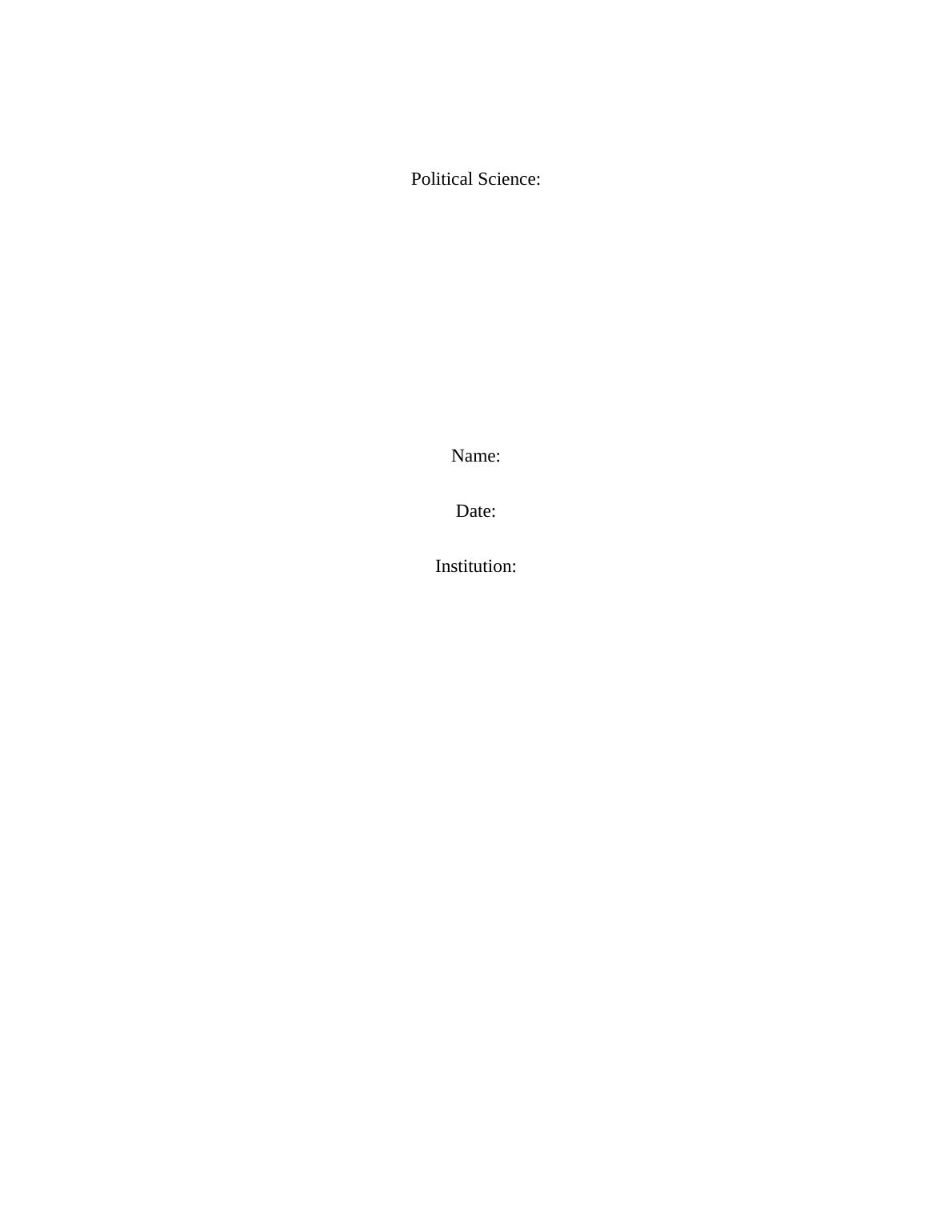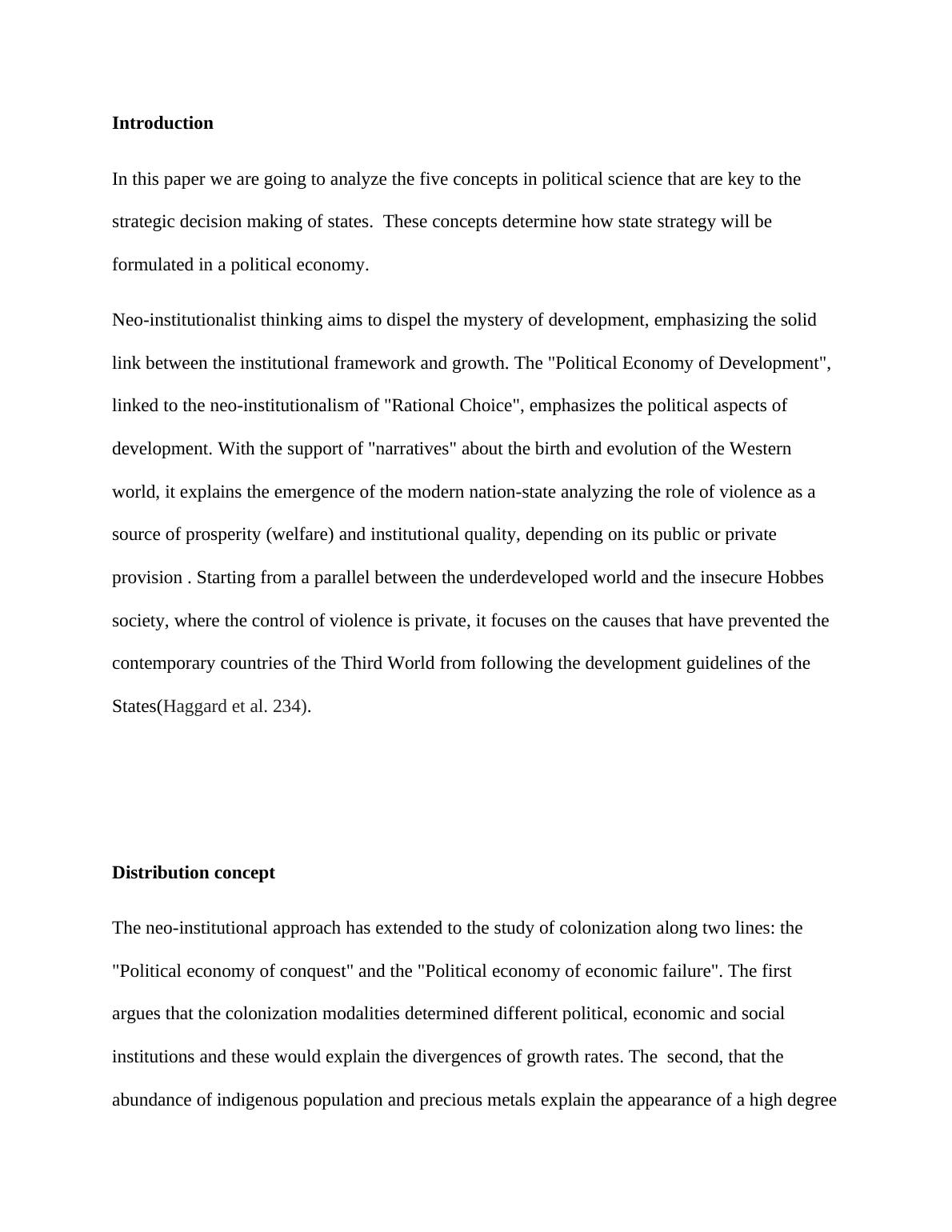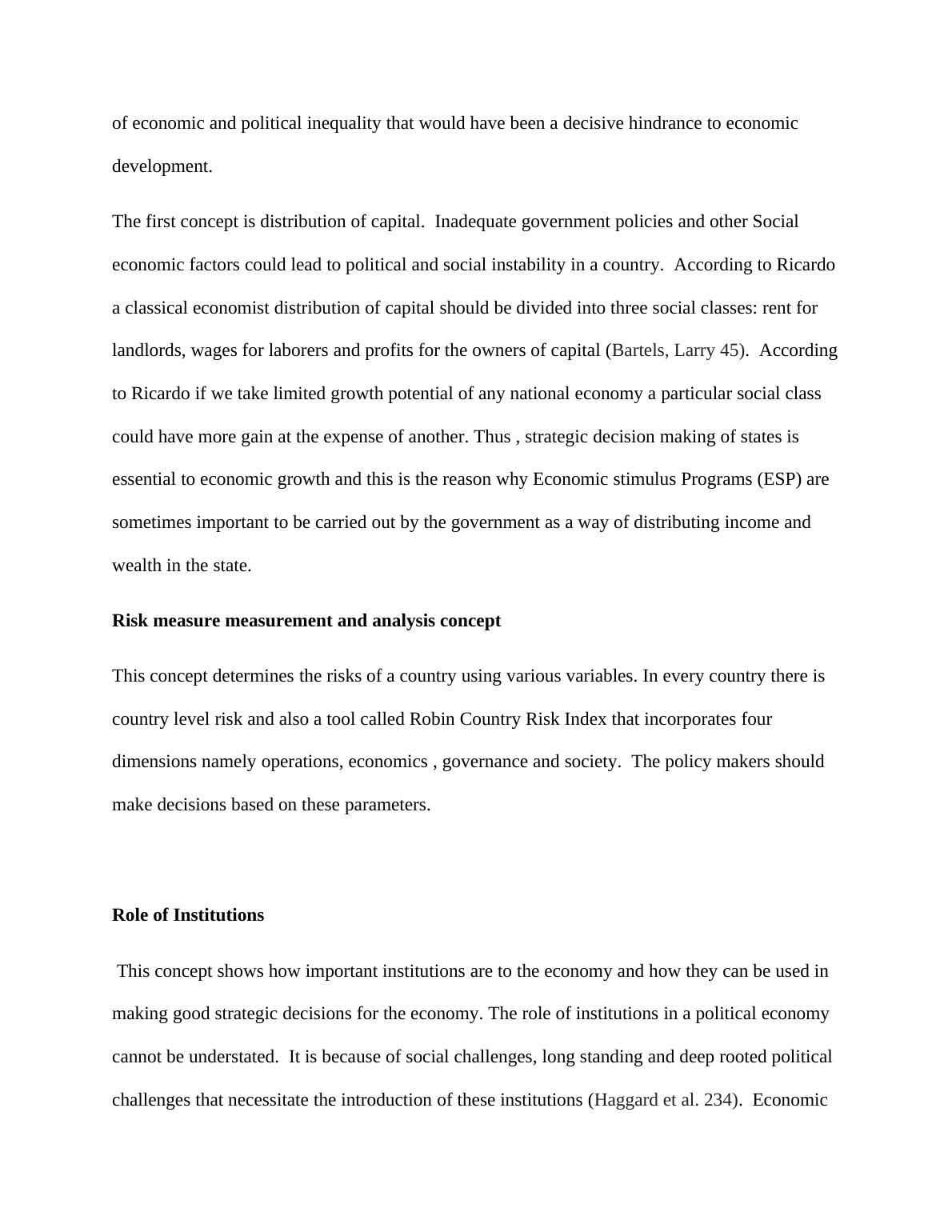Key Concepts in Political Science for Strategic Decision Making of States
7 Pages1282 Words483 Views
Added on 2023-06-04
About This Document
This paper analyzes the five key concepts in political science that determine the strategic decision making of states for economic growth and resource distribution. The concepts include distribution of capital, risk measure and analysis, role of institutions, market versus hierarchy, culture and the economy, and embeddedness of the market. The paper also discusses how these concepts are crucial in decision making of Multinational Corporations (MNCs) and their influence on global processes.
Key Concepts in Political Science for Strategic Decision Making of States
Added on 2023-06-04
ShareRelated Documents
End of preview
Want to access all the pages? Upload your documents or become a member.
SOCIOLOGY. 3. 3. : SOCIOLOGY. SOCIOLOGY.
|9
|2197
|36
Assignment on Global Economic Constitution
|17
|6162
|29
POL2000/ Political and Economic Ideas
|5
|1185
|17
Neo-liberalism and Economic Globalization: Definitions and Key Aspects
|9
|1503
|406
Assignment Neo-Liberalism
|7
|1328
|48
MAN302 - Australian Industrial Relations Assignment
|11
|2317
|78



